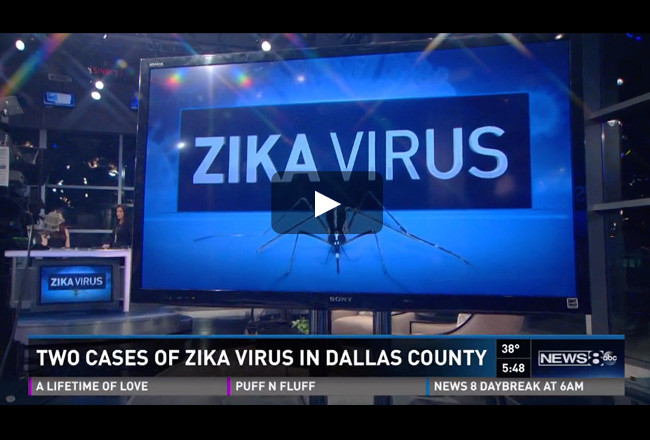The Zika Virus: Your Questions Answered
You have likely heard a lot in the news in recent days about the Zika virus and the serious birth defects that are believed to be associated with it if a pregnant woman becomes infected. Cases have now been reported in 23 countries internationally, and the World Health Organization plans to convene a committee in the days to follow to determine whether this outbreak is to be considered an international public health emergency. Moreover, the Center for Disease Control and Prevention (CDC) published a warning this month advising pregnant women to avoid travel to certain areas in Central and Latin America with high reports of the Zika virus. And it may already be hitting closer to home, as a case of an infected woman in Texas has been revealed. With all the media craze, it’s understandable that many of my pregnant and even my non-pregnant patients have very pertinent questions regarding their travel plans, their risks, and what symptoms to look for. Here are some of the questions being asked.
What is the Zika virus, and what areas are being affected by it?
The Zika virus is transmitted by the Aedes species of mosquitos, which can also carry the Dengue, Chikungunya, and West Nile viruses. The first reports of the Zika virus were in Africa, and since then, the virus has spread across Asia and to the Americas. In March 2015, the first case of Zika virus infection was reported in Brazil, and the last few months have seen a rapid increase in the number of cases in Brazil and in other areas of South America, Mexico, and Puerto Rico. So far, the largest outbreak has been in Latin America.
Has it reached the U.S.?
There have been several diagnoses of the Zika virus in the U.S., however these individuals are believed to have contracted the virus during recent trips to Latin America. There is concern that if the virus does spread to the U.S., the states of Texas and Florida may be especially vulnerable given patterns of the mosquitos that carry it and the fact that these states tend to see a significant amount of commercial and business travel to and from Central and South America. However, at this time there have been no reports of anyone actually contracting the virus in the U.S., and there are no travel warnings against any region of the U.S.
What are the complications of a Zika virus infection?
In general, infection with this virus can cause mild symptoms such as fever, joint and muscle aches, rash, and red watery eyes, however only about 1 in 5 individuals with a Zika virus infection will actually develop any symptoms at all. An individual who has such symptoms and who happens to have traveled to Central and South America in the week prior to the onset of these symptoms should be evaluated for a possible infection.
In pregnancy, there may be more dangerous consequences as there is concern that the virus may be associated with microcephaly, a condition in which the infant’s head is significantly smaller than the heads of other infants of the same age and sex. Microcephaly can have several effects on a baby, ranging from developmental and intellectual delay to hearing or vision loss to seizures. It can also cause infant death. With the large increase in cases of Zika virus in Brazil and Latin America, the number of cases of infants born with microcephaly has seen a parallel increase (3500 cases in Brazil so far). Also, several infants who have died with suspicion of Zika virus infection have been tested and found to have Zika virus within the tissue or amniotic fluid. Although there is no definite proof that the Zika virus causes microcephaly, these cases are serious enough to prompt the CDC to make its recent statements and recommendations. And, according to the CDC, as the virus only remains in a person’s blood for up to one week, an infection out of pregnancy does not pose a risk of birth defects for future pregnancies.
Is there treatment for the Zika virus?
There are no medications available to fight the Zika virus and there is no vaccine to prevent someone from becoming infected with it. The CDC advises to treat symptoms by staying in bed, staying hydrated, and taking Acetaminophen as needed. It is also recommended that pregnant and non-pregnant patients suspected of having the Zika virus avoid Aspirin and other non-steroidal anti-inflammatory drugs, or NSAIDs. Most importantly, those with a possible infection should stay indoors and in isolation for at least one week after the onset of symptoms, to avoid getting bitten by another mosquito and then transmitting the virus to another person.
How can I protect myself from it?
First of all, heed all travel warnings, particularly if you are pregnant. This is especially important for the public to recognize given the upcoming 2016 Olympics that will be held in Brazil. If you are considering travel, make sure to look for the travel advisory on the CDC’s website for the updated list of areas to avoid or postpone.
Use insect repellant and cover up. Apply insect repellant frequently and wear long sleeve shirts and long pants to help protect yourself from mosquito bites. Use screens on your doors or windows if you must leave them open. Get rid of standing water around your home to prevent mosquito breeding.
And of course, if you are pregnant and have any questions or concerns regarding your recent travel or plans for any upcoming travel, see your doctor.
For more information, visit www.cdc.gov/zika.


